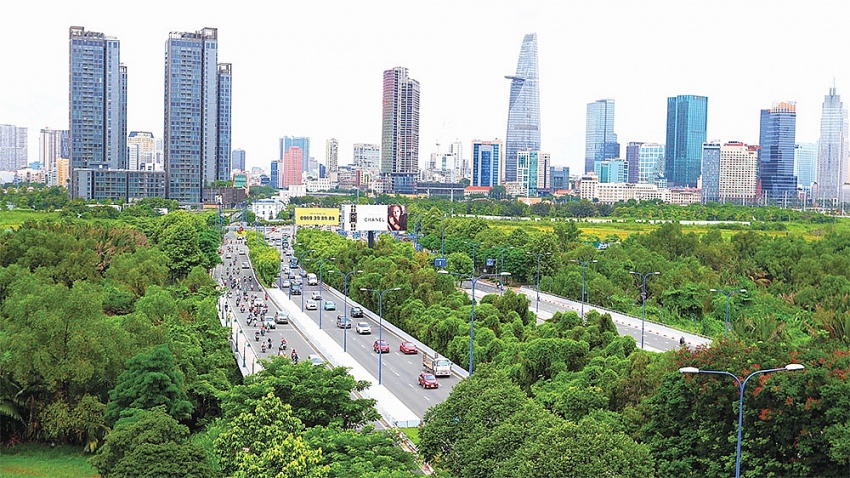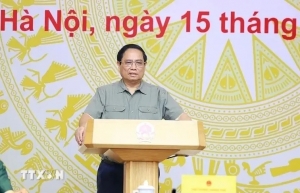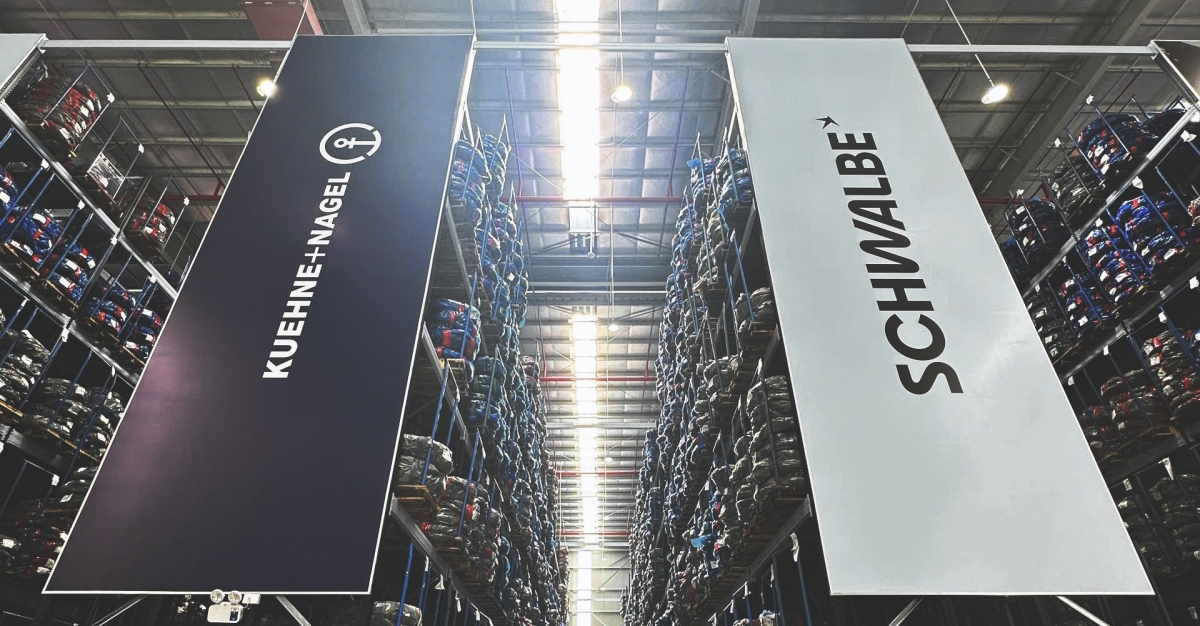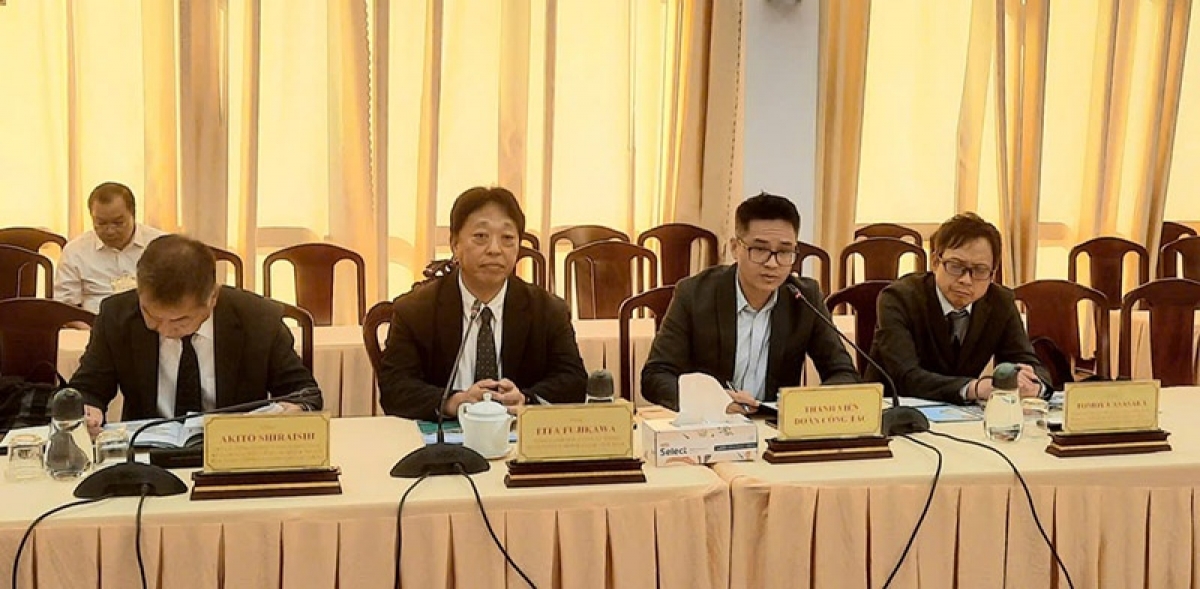INTERNATIONAL INVESTMENT
AND PORTAL
Vietnam has plans to offer policies and a legal framework to draw in investors to develop international financial centres.
 Danang and Ho Chi Minh City are the main focus for building full-fledged financial centres, Photo: Le Toan
Danang and Ho Chi Minh City are the main focus for building full-fledged financial centres, Photo: Le Toan
At a September 30 meeting between permanent cabinet members and the steering committee for developing regional and international financial centres (IFCs), Prime Minister Pham Minh Chinh asked relevant authorities to clearly define the scope and operating model of regional and IFCs to be established in Vietnam.
“Building IFCs project is a new and complicated mission without any precedents. Thus, it is necessary to discuss carefully to select and optimise plans to specialise the guidelines,” PM Chinh said. “The key sectors to attract relate to finance, banking, and capital markets. It needs to build a special mechanism and breakthrough legal framework relating to visas, labour, tax, and skilled human forces to attract large-scale financial power sources to the centres,” PM Chinh said.
In mid-September, PM Chinh set up the steering committee on building IFCs as the head of the committee, with Minister of Planning and Investment Nguyen Chi Dung becoming deputy.
The Ministry of Planning and Investment is in the process of consolidating feedback and reporting to the head of the steering committee to finalise the draft project, which will then be submitted for approval. The ministry will also lead and coordinate with relevant agencies to develop a draft resolution on a specific mechanism for building and developing the IFC.
According to one source, many mechanisms are being discussed to establish IFCs because these mechanisms have yet to have precedent in Vietnam. According to the plan, there will be an independent court and an independent legal framework applying common law to IFCs based on case law as the current regulation does not allow the formation of an independent court and independent legal framework to apply specialised legal systems, compared to the general legal framework of the country.
The committee is waiting for the opinion of the State Bank of Vietnam (SBV) regarding removing the policy to control foreign currency in IFCs, and allowing the using of convertible foreign currency as transaction units. These proposals are international practice, but have no precedent in Vietnam.
It is also collecting the opinions of the SBV and the Ministry of Finance on the application of an unlimited sandbox mechanism in the financial sector, which is normally applied in the international financial markets.
Another key proposal is to apply financial standards according to international practices. Meanwhile, in Vietnam, the determination and accounting of costs are carried out in accordance with Vietnamese accounting standards and other relevant legal provisions.
“There will be incentive mechanisms relating to corporate income tax, and personal income tax for subjects with operations in IFCs,” the steering committee noted. “English is proposed to become a common language for transactions. In addition, a preferential immigration mechanism for experts and investors in IFCs will be applied, as well as a preferential labour management policy for experts.”
Several foreign investors are eager to partner with the Vietnamese government to develop a financial centre in the country. For example, Standard Chartered committed to leveraging its experience and best practices to support the development of an IFC in Ho Chi Minh City. Furthermore, in 2023, the UK government appointed TheCityUK to support Vietnam’s goal of developing a regional financial and business centre in the same city.
The implementation schedule for building IFCs will unfold in three periods. From 2025 to 2030, Vietnam will prepare the basic conditions for a centre’s formation. Policymakers will review and integrate financial centre development into government strategies, planning, programmes, and action plans, and those of the localities where a centre is established.
2031 to 2035 will see the application of pilot policies for the establishment of a financial centre, along with infrastructure development. After that, Vietnam will aim to develop an IFC with the goal of becoming a regional financial hub. The potential for expanding the financial centre’s area will also be considered.
 Investors need guidelines for IFC ambitions
Investors need guidelines for IFC ambitions
Several foreign investors are eager to partner with the Vietnamese government to develop a financial centre in the country, but emphasise the need for more open and innovative mechanisms to make it happen.
 PM leads steering committee on formulating regional, international financial centre project
PM leads steering committee on formulating regional, international financial centre project
Prime Minister Pham Minh Chinh has signed a decision on the organisation of the Steering Committee on formulating the project on building regional and international financial centres.
By Oanh Nguyen



















